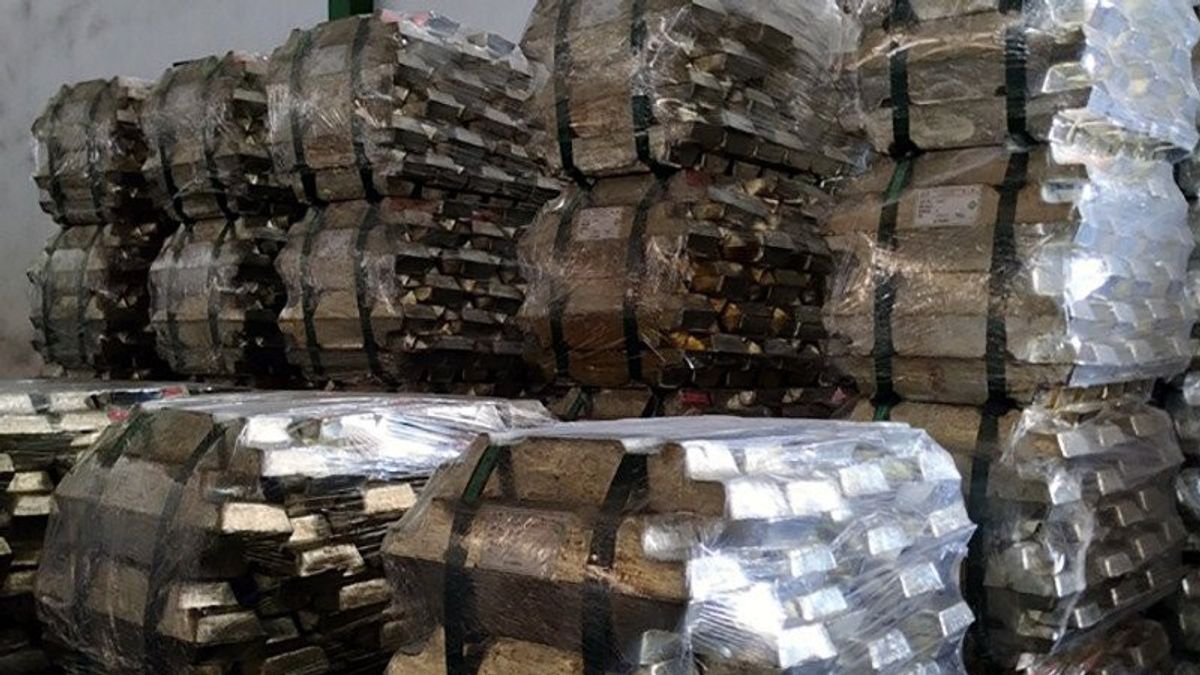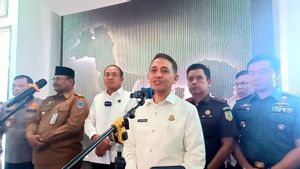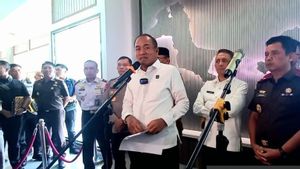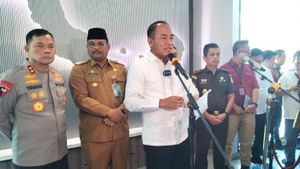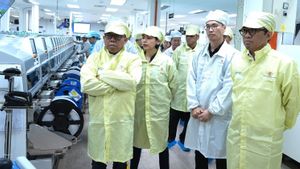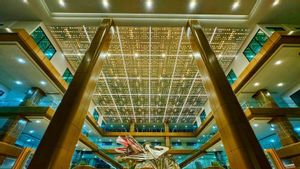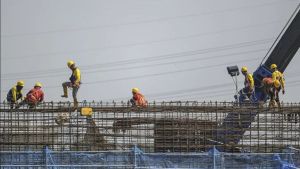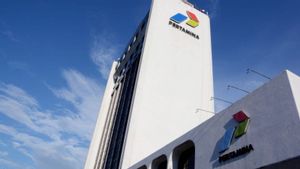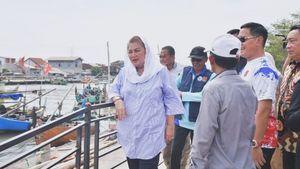JAKARTA - Environmental activists, as well as supervisors of the Bangka Belitung Nature Rehabilitation Foundation, Elly Rebuin, responded to the corruption case of PT Timah which resulted in Mass Layoffs on smelter employees in Bangka Belitung.
Elly highlighted that previously in a limited meeting at the President's office, Thursday, June 25, 2015, President Jokowi promised that the people's mines in Bangka Belitung would be legalized.
"The President's promise is now being billed. Instead of being legalized and fostered, people's miners are being chased and arrested. The results of the people's mines at PT Timah IUP are now causing the former Board of Directors of PT Timah for the 2015 period 2022 and a number of smelters have been sent to the custody of the Prosecutor's Office," he said in a statement received by VOI, Tuesday, April 23.
Elly continued, they were accused of buying illegal lead mined from PT Timah's IUP, then merged by a private smelter, then bought again by PT Timah.
Although the process is accused of being charged with corruption, the AGO has not released the value of the loss from this business practice. The AGO set state losses from the calculation of ecological damage carried out by environmental IPB expert Bambang Hero Saharjo who stated the losses incurred up to IDR 271 trillion.
This figure, he said, makes this corruption case the largest in the history of investigating corruption cases in Indonesia.
Elly then questioned the method used by Bambang Hero Saharjo. Tin mining in Bangka has started since 1711.
The destruction of Babylon's nature has occurred since the tin civilization took place. How can the destruction of nature be charged to cooperative activities in 2015 2022? " Asked Elly.
According to him, damage cannot be seen in a certain period only because mining activities have been going on for centuries before.
According to the Deputy Chairperson of the Environment Division of HKTI Babel, don't just look at the negative aspects. But economic benefits for the government, society and the business world must also be considered.
Elly also questioned who was accused by the Attorney General's Office of vandalism.
If it is addressed to people's miners, then generally they mine their own land, even though they don't have IUPs.
"They had mined before PT Timah and the smelter were established," he explained.
Furthermore, Elly also questioned the reclamation guarantees that had been deposited by PT Timah and the smelter to the state.
"How come it's not taken into consideration by the Prosecutor's Office?" he said.
Elly argues that the mining actors are not working in clear but chaotic commercial conditions.
Elly further said that the cooperation with PT Timah at the end of 2018 2020 where the results of the mining were collected by PT Timah, was compensated and merged in a private smelter where the metal was sent to PT Timah, according to Elly, the most correct scheme.
"The results of the chaotic return to the country through PT Timah, the people's miners continue to work and the babel economy continues," explained Elly.
Separately, Secretary General of the Indonesian Mineral Sand Mining and Processing Association (Atomindo) Rudi Syahwani revealed that the conditions that occurred in Bangka Belitung narrowed the community's space to obtain prosperity from his own land.
As is known, every mining activity must obtain a mining business permit (IUP) in accordance with the Minerba Law. However, there are difficulties for the community to obtain this IUP because of the complicated bureaucracy.
"Finally, people mine lead on their own land, they are not allowed to because they don't have IUPs. But people say this is my land, there is an official Ownership Certificate (SHM) from the state, so it's okay, and this has been happening for decades," said Rudi.
Rudi said that actually PT Timah and Smelter could not accept tin mining products from the community because they were considered illegal and violated the law. However, this must be done because many regions of the PT Timah IUP concession and private companies do not have tin content.
On the other hand, community land such as plantations actually produces lead even though it is only at a few points.
"Here, finally, transactions occur, the name of the community is pragmatic, they need money, they sell the proceeds from tin mines to the private sector because in terms of price, it can be doubled compared if they sell to PT Timah, to record the claim report from the IUP of the private company concession earlier. Now this is the problem, there needs to be a revision of regulations that facilitate. If people are prohibited from mining, it is on their own land, and the activity existed before PT Timah and the private sector were in their place. It's strange if people are sacrificed," explained Rudi.
SEE ALSO:
Previously, the Bangka Belitung Provincial Government also admitted that it was aware of the occurrence of layoffs and employees who were laid off from the smelter company, especially through verbal reports.
Therefore, it is necessary to be warned of the bad effects of the sluggish tin industry in Babylon.
"There will definitely be problems with the employment situation, especially the number of people who are not working will increase and other effects will appear," said Head of Industrial Relations Supervision (HI) and Social Security (Jamsos) of the Babel Manpower Office Agus Afandi.
One of the concerns of the large number of people who have lost their jobs is the increase in crime. When income becomes difficult to achieve, the potential for increased crime is even higher.
"For this problem, of course, it is not only the Manpower Office, but all stakeholders must play a role. We only hope that legal efforts to impose sanctions and control of the Entrepreneurship business in Babel, as a way for entrepreneurs, especially running their business by following applicable regulations. We do not expect bad things to happen, of course all parties can take lessons from what has happened and anticipate things that are not good," concluded Agus.
The English, Chinese, Japanese, Arabic, and French versions are automatically generated by the AI. So there may still be inaccuracies in translating, please always see Indonesian as our main language. (system supported by DigitalSiber.id)
